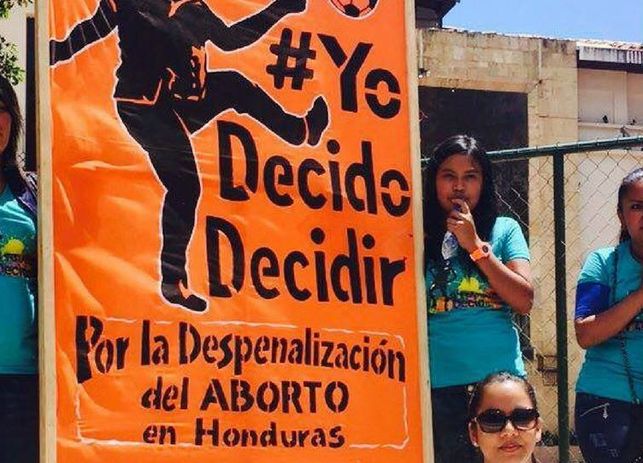
On 14 November 2018, the Human Rights Council Working Group on the issue of discrimination against women in law and in practice issued a statement sharing the preliminary findings of the Independent Experts official visit to the country.
In their conclusion, they found that, although Honduras has ratified several Human and Women’s Rights treaties, the country has failed to implement this legal framework and, thus, violates Article 60 of the Honduras Constitution that prohibits any discrimination based on sex, race, class or any other that is harmful to human dignity.
Abortion rights
In the most recent visit, the expert group stressed the importance of abortion and contraceptive rights and law reform in the country, where the practice is criminalized in all circumstances and emergency contraceptive are prohibited.
The consequences fall especially upon poor rural women, who not only are not entitled to emergency contraceptive methods, but can neither have access to contraception or health services, in a country with a high rate of maternal mortality and morbility (129 deaths of women per 100,000 live births).
The statement argues that “the blanket criminalisation of abortion and the obligation of medical professionals to report cases of women whose injuries appear related to unsafe abortions have put women in prison. Moreover, these denunciations by medical professionals may dissuade women who are miscarrying or suffering complications from abortion from seeking necessary medical attention, thereby putting their lives in danger. Criminalisation of women for abortion is against international human rights standards and we urge the Government to review its legislation on abortion and emergency contraception to bring it in line with the international standards.”
Gender-based violence against women, a widespread phenomenon in the country, also leads to a systematic prevalence of sexual assault and violence. According to a Center for Reproductive Rights (CRC) report, a case of sexual assault was filed an average of every three hours in 2013. However, if a Honduran woman becomes pregnant in result of a rape or incest, she cannot have a legal abortion.
CRC’s Advocacy Advisor Elida Caballero Cabrera declared in 2017, after a failed attempt at revising the country’s penal code, fueled by Catholic anti-abortion groups, that “Honduras is a very, very dangerous place for women… It’s a country that lives in extreme poverty and in constant war and lack of security. And it’s very sad to see that the decisions made by the government, and the people who should be promoting all this access to justice for these women, are the ones who are putting so many barriers for them.”
Health access
Experts also alert to the effects of health privatisation policies in the country, carried out in 2017 that privatised every hospital when considered the structural inequalities in regards to sex, gender identity and sexual orientation.
According to the report, lesbian, bisexual, transgender and intersex women (LBTI) women, sex workers/women in prostitution and women living with HIV have reportedly less access to quality health care due to stigmatization and discriminatory attitudes about their identities or health status.
Women have reported severe cases of discrimination of women living with HIV and women with disabilities in health sector, in the forms of forced sterilisation.
The Vatican nexus
These circumstances and their effects are not new to Honduras though. They are a part of a wider transnational political composition around gender.
In an article on the genealogy of antigender crusades, Sonia Corrêa shares her findings on the preliminary role Honduras and other Catholic majority countries had at 1995 UN talks at the New York Headquarters that anteceded the IV UN Women’s Conference in Beijing. Then, relevant actors, such as Danielle O’Leary and Catholic US-based organizations were already pronounced against sexual and reproductive rights.
According to Corrêa, “This well-orchestrated political formation is not new and much less peculiarly Brazilian. As analysed by numerous of authors, including Butler herself in Undoing Gender, the origins of this crusade must be retraced back to the 1990’s United Nations debates when, for the first time, at the 1994 Cairo International Conference on Population and Development, the term gender was inscribed in a document resulting from an inter-governmental negotiation. Six months later, at the Preparatory Committee Meeting for the IV World Conference on Women (Beijing 1995), in New York, the term gender was openly attacked by US-based right-wing Catholic groups and it remained under suspicion until right before the conference. Significantly enough, in the Beijing Conference itself, the term was not openly attacked, probably because the Vatican and its allies had other urgent matters to cope with such as the sexual rights of women and sexual orientation as a non-justifiable basis of discrimination.”
